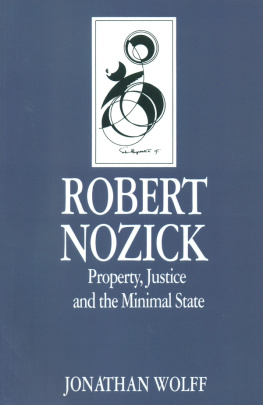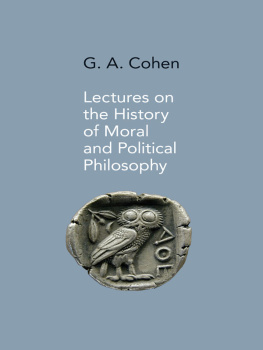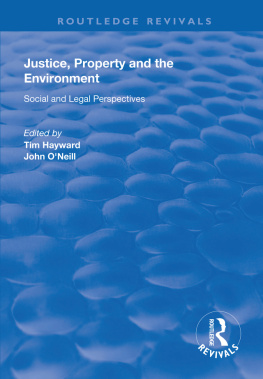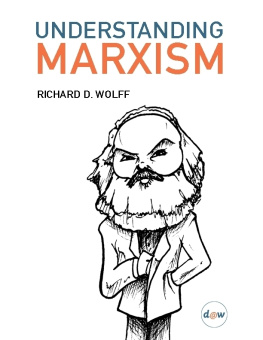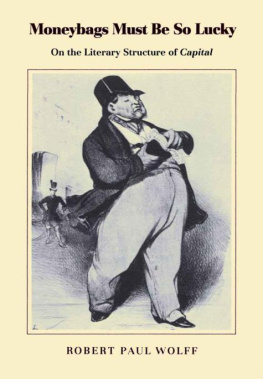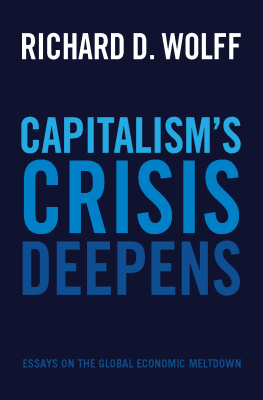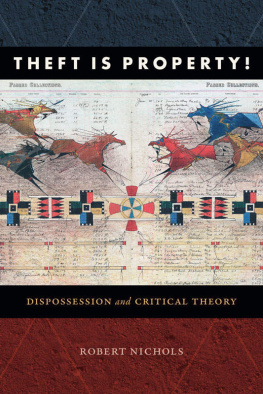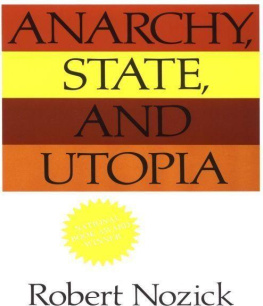Jonathan Wolff - Robert Nozick: Property, Justice and the Minimal State.
Here you can read online Jonathan Wolff - Robert Nozick: Property, Justice and the Minimal State. full text of the book (entire story) in english for free. Download pdf and epub, get meaning, cover and reviews about this ebook. year: 1991, publisher: Stanford University Press, genre: Politics. Description of the work, (preface) as well as reviews are available. Best literature library LitArk.com created for fans of good reading and offers a wide selection of genres:
Romance novel
Science fiction
Adventure
Detective
Science
History
Home and family
Prose
Art
Politics
Computer
Non-fiction
Religion
Business
Children
Humor
Choose a favorite category and find really read worthwhile books. Enjoy immersion in the world of imagination, feel the emotions of the characters or learn something new for yourself, make an fascinating discovery.
- Book:Robert Nozick: Property, Justice and the Minimal State.
- Author:
- Publisher:Stanford University Press
- Genre:
- Year:1991
- Rating:5 / 5
- Favourites:Add to favourites
- Your mark:
- 100
- 1
- 2
- 3
- 4
- 5
Robert Nozick: Property, Justice and the Minimal State.: summary, description and annotation
We offer to read an annotation, description, summary or preface (depends on what the author of the book "Robert Nozick: Property, Justice and the Minimal State." wrote himself). If you haven't found the necessary information about the book — write in the comments, we will try to find it.
Robert Nozick: Property, Justice and the Minimal State. — read online for free the complete book (whole text) full work
Below is the text of the book, divided by pages. System saving the place of the last page read, allows you to conveniently read the book "Robert Nozick: Property, Justice and the Minimal State." online for free, without having to search again every time where you left off. Put a bookmark, and you can go to the page where you finished reading at any time.
Font size:
Interval:
Bookmark:
Key Contemporary Thinkers
Published
Jeremy Ahearne, Michel de Certeau: Interpretation and its Other
Peter Burke, The French Historical Revolution: The Annales School 19291989
Simon Evnine, Donald Davidson
Andrew Gamble, Hayek: The Iron Cage of Liberty
Graeme Gilloch, Walter Benjamin
Phillip Hansen, Hannah Arendt: Politics, History and Citizenship
Christopher Hookway, Quine: Language, Experience and Reality
Douglas Kellner, Jean Baudrillard: From Marxism to Post-Modernism and Beyond
Chandran Kukathas & Philip Pettit, Rawls: A Theory of Justice and its Critics
Lois McNay, Foucault: A Critical Introduction
Philip Manning, Erving Goffman and Modern Sociology
Michael Moriarty, Roland Barthes
William Outhwaite, Habermas: A Critical Introduction
Susan Sellers, Hlne Cixous: Authorship, Autobiography and Love
Georgia Warnke, Gadamer: Hermeneutics, Tradition and Reason
Jonathan Wolff, Robert Nozick: Property, Justice and the Minimal State
Forthcoming
Alison Ainley, Irigaray
Sara Beardsworth, Kristeva
Michael Best, Galbraith
Michael Caesar, Umberto Eco
James Carey, Innis and McLuhan
Colin Davis, Levinas
Eric Dunning, Norbert Elias
Jocelyn Dunphy, Paul Ricoeur
Judith Feher-Gurewich, Lacan
Kate and Edward Fullbrook, Simone de Beauvoir
Adrian Hayes, Talcott Parsons and the Theory of Action
Sean Homer, Fredric Jameson
Christina Howells, Derrida
Simon Jarvis, Adorno
Paul Kelly, Ronald Dworkin
Carl Levy, Antonio Gramsci
Harold Noonan, Frege
John Preston, Feyerabend
David Silverman, Harvey Sacks
Nick Smith, Charles Taylor
Geoff Stokes, Popper: Politics, Epistemology and Method
Ian Whitehouse, Rorty
James Williams, Lyotard
Robert Nozick
Property, Justice and the Minimal State
JONATHAN WOLFF
Polity Press
Copyright Jonathan Wolff 1991
First published 1991 by Polity Press
in association with Blackwell Publishers Ltd
Reprinted 1996
Transferred to digital print 2003
Editorial office:
Polity Press
65 Bridge Street, Cambridge CB2 1UR, UK
Marketing and production:
Blackwell Publishers Ltd
108 Cowley Road, Oxford OX4 1JF, UK
All rights reserved. Except for the quotation of short passages for the purposes of criticism and review, no part of this publication may be reproduced, stored in a retrieval system, or transmitted, in any form or by any means, electronic, mechanical, photocopying, recording or otherwise, without the prior permission of the publisher.
Except in the United States of America, this book is sold subject to the condition that it shall not, by way of trade or otherwise, be lent, re-sold, hired out, or otherwise circulated without the publishers prior consent in any form of binding or cover other than that in which it is published and without a similar condition including this condition being imposed on the subsequent purchaser.
ISBN 0 7456 0602 4
ISBN 0 7456 0603 2 (pbk)
A CIP catalogue record for this book is available from the British Library
Typeset in 11 on 13pt Garamond by Wearside Tradespools, Sunderland
Printed and bound in Great Britain by Marston Lindsay Ross International Ltd, Oxfordshire
I first read Nozick as an undergraduate in 1980. At that time philosophy students usually reacted to Anarchy, State, and Utopia in one of two ways. Either they thought its conclusions so repugnant that it should not be taken seriously as political philosophy at all, or they thought its conclusions so repugnant that it was vital (but not very difficult) to show how it fails. Now, in 1990, as a teacher of philosophy, I still encounter these two reactions, but fairly often I also encounter a third: that, broadly speaking, Nozick is right.
My own initial entanglement with Nozick was slightly more complicated. Feeling a strong attraction to individual liberty, and being prepared to believe that a likely consequence of this might well be some form or other of anarchism, I had attempted some preliminary reading into anarchist theory. But I was both dissatisfied with the uncritical vagueness of anarchys defenders and annoyed by the crass, one-line dismissals of it by its opponents. So I welcomed the chance to read a book with Anarchy in its title as part of my introduction to political philosophy. However, I had taken it for granted that the anarchy referred to would be socialist, or, at the least, egalitarian, and, as I read Nozick, I became increasingly concerned. What was money doing in the state of nature? And private property rights? And free enterprise? It had not even occurred to me that anarchy could be made to yield rampant capitalism. An initial commitment to liberty seemed to lead, not to equality, as I had assumed, but to inequality. Thus I was forced, for the first time, to face the question of whether I cared more about liberty than equality. I had no firm answer to that question then, and I have no firm answer now. However, as I aim to show here, Nozick, despite his best efforts, does not, in fact, succeed in demonstrating any important inconsistency between liberty and equality. So I can, at least for the time being, put off the question.
I cannot, however, put off the questions of why it is I think Nozick is wrong, and why it is important to show that he is wrong. Fortunately, the second question, at least, has an easy answer. Nozicks views have many affinities with the defence of laissez-faire capitalism which has been part of the ruling ideology of the 1980s. It has not escaped my notice that during my entire university career both as student and teacher Margaret Thatcher has been Prime Minister of Great Britain, and ideas like those of Nozick have had, to put it mildly, a huge and destructive effect on the lives of a great many people. It is, perhaps, unlikely that showing the difficulties with those ideas will have much practical effect, yet the task is still worthwhile.
My intention has been to present my case by reason, not rhetoric. This accounts for much of the style and tone of this book. One easy way of writing about Nozick would be in the denunciatory mode of a political pamphlet, revealing outrage after outrage. I wanted to avoid that at all costs, for this is intended to be a work of political philosophy, not polemic. I have tried to set out Nozicks views as fairly as possible adding extra arguments where I can and then to show, coolly and calmly, where Nozick is mistaken. Finally, this is a book about Nozick, not about me. Although I have grappled with Nozick partly as a means towards learning the truth for myself, the point of this book is not to display my own views, but to examine Nozicks.
The opportunity to do this came when Mike Rosen suggested that I should write this book. The idea that someone should write a book on Nozick was John Thompsons. I am very grateful to them both for setting me off on this project, and for their encouragement along the way. Lively discussions with Mike, and his perceptive comments on the penultimate manuscript, have also led to many improvements. Jerry Cohen, who first introduced me to Anarchy, State, and Utopia, and convinced me of its importance, also provided immensely helpful comments on the whole manuscript, and of course, his own work on Nozick has been a major influence on mine (as it has been on so many). Others who have read the work in various stages, and from whose suggestions and criticism I have profited, include Jonathan Dick, Chris Hull, Miles Sabin, Nick Zangwill, and, especially, Simon Evnine and Elaine Collins. I would also like to thank two anonymous publishers readers for their useful suggestions, and Malcolm Budd for his help and encouragement.
Font size:
Interval:
Bookmark:
Similar books «Robert Nozick: Property, Justice and the Minimal State.»
Look at similar books to Robert Nozick: Property, Justice and the Minimal State.. We have selected literature similar in name and meaning in the hope of providing readers with more options to find new, interesting, not yet read works.
Discussion, reviews of the book Robert Nozick: Property, Justice and the Minimal State. and just readers' own opinions. Leave your comments, write what you think about the work, its meaning or the main characters. Specify what exactly you liked and what you didn't like, and why you think so.

